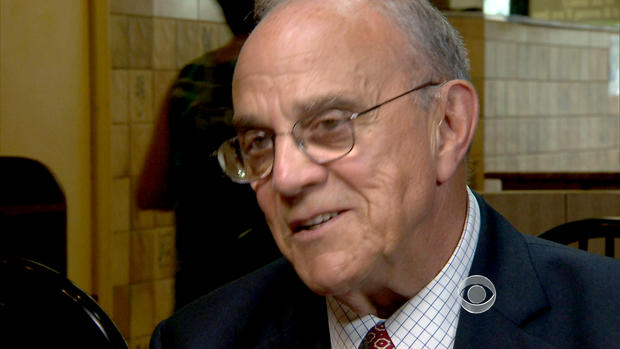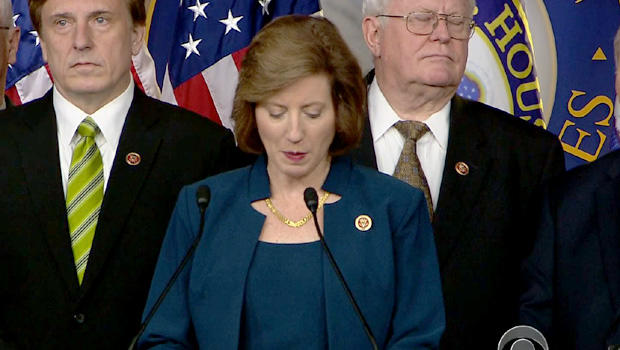Opponents decry Supreme Court's DOMA ruling
(CBS News) NEW YORK - Views on same-sex marriage have been changing.
Last year, a CBS News-New York Times poll found 42 percent of Americans felt same sex marriage should be legal. More than half said no.
Now, 51 percent support it, and 44 percent are still opposed.
DOMA, Prop 8 rulings draw favor from the left, fury from the right
What's next for California after Prop. 8 case dismissed
What do those opposed think about Wednesday's rulings?
"They are changing the definition and institution of marriage, which I think is the wrong thing for western civilization," said Michael Long, who helped lead opposition to New York's same-sex marriage law in 2011.
CBS News sat down with Long in his favorite Brooklyn neighborhood pizzeria. The father of nine has been married to his wife for 50 years.
"I don't see this in any way equivalent to the civil rights movement," he said. "Some people like to game it and call it the civil rights movement. This is about an institution, this is about what marriage really stands for, this is about raising a family."
Although a slim majority of Americans say same-sex marriage should be legal, 60 percent of those CBS News polled with the New York Times said state governments should make that decision. The point was echoed Wednesday by Republicans and conservatives on Capitol Hill.
"This is a dangerous precedent, which strips power away from Congress with respect to defining national marriage policy," said Missouri Congresswoman Vicky Hartzler.
Long worries the result will be same-sex couples shopping for benefits across state lines.
"So therefore if you live in New York in terms of what the legislature did last year approving what I call the destruction of traditional marriage, you are going to be able to get federal benefits if you are a same-sex couple," he said. "If you live in Jersey, you are not going to be able to get federal benefits. We have created more confusion."
There are also the moral objections. The U.S. Conference of Catholic Bishops called this "a tragic day for marriage"; and the Southern Baptist leader Albert Mohler said Wednesday's decisions were creating serious religious liberty challenges for all churches.
"
